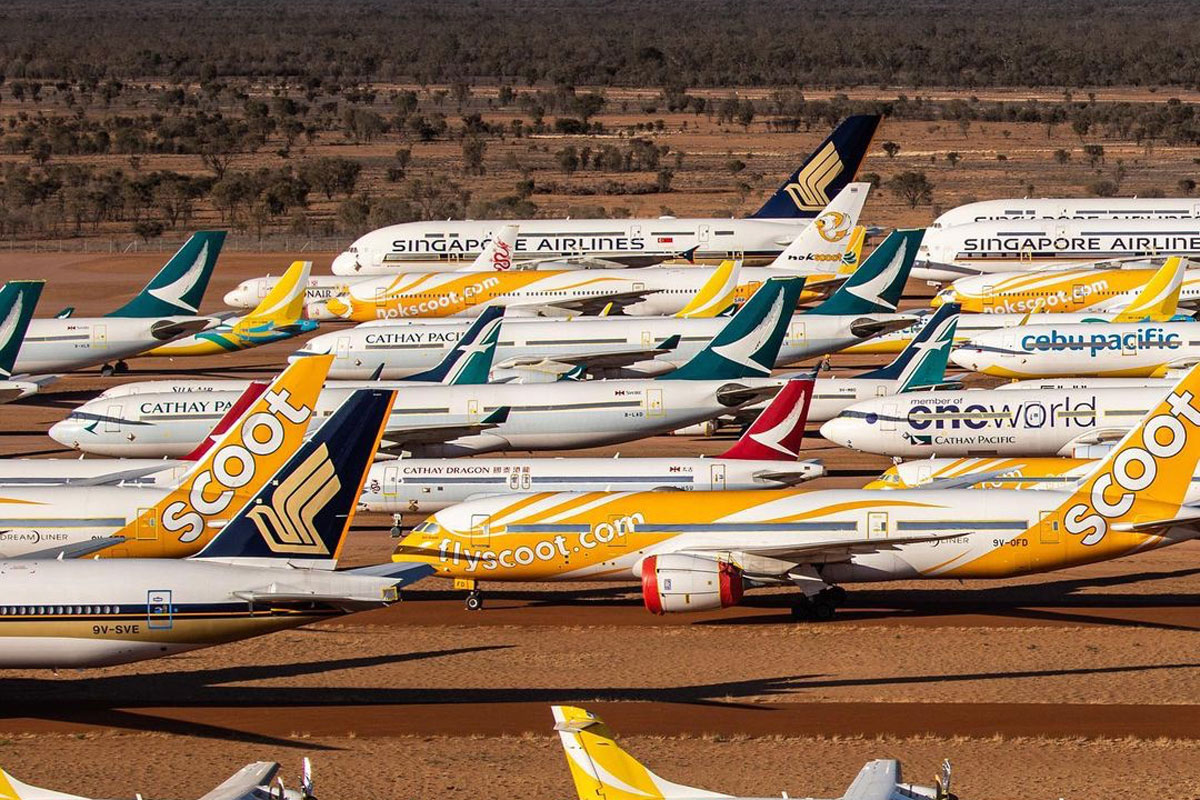The skies are sparse, but part of the Australian outback is full of planes.
News.com.au reports “billions of dollars worth of passenger jets are waiting out the pandemic” in a storage facility near Alice Springs.
This dusty desert graveyard is booming, its dry climate ideal for preserving aircraft.
A recent photo by plane spotter @aviation_tommy_ shows the Asia Pacific Aircraft Storage facility is home to jets from a variety of operators.
“That photo was taken by a helicopter,” Tommy told DMARGE. “I was flying with Alice Spring helicopter and we had a 20 minutes flight just circling around the airpark.”
“Many aircraft from different Asia[n] countries have been sent to Alice Springs; this is sad… to see to be honest, but it was a good experience to see these birds in the middle of Australia.”
From Singapore Airlines to Cathay Pacific, many airlines are hoping to keep their aircraft in good shape until there is demand for them again.
View this post on Instagram
The facility has been so coveted during Covid the company plans to expand to accommodate up to 200 more aircraft, news.com.au reports.
Alice Springs is not alone in this boon. Airline ‘boneyards’ have been massively sought after this year as operators have scrambled to relocate their jets.
Why? As demand for travel plummeted, airlines faced the choice of mothballing their jets in a facility like Alice Springs or paying up to $400 an hour to continue storing them in popular airports.
Reports suggest The Arizona Boneyard in the US city of Tucson, for its part, is now home to 4500 grounded aircraft.
To put this all in perspective, Bloomberg reported earlier this year, “the number of passenger jets in service is the lowest in 26 years.”
“Finding the right space and conditions for 62% of the world’s planes and keeping them airworthy have suddenly become priorities for 2020.”
View this post on Instagram
Another reason for the popularity of aeroplane ‘boneyards is because, as a Qantas pilot told DMARGE earlier this year, even if they wanted to, airlines will struggle to offload these expensive, depreciating assets: “I’m not sure there’s a market for used airliners at present given the financial stress most airlines are under. Airlines are more likely looking to return leased aircraft as opposed to selling owned aircraft.”
“Boeing and Airbus are both seeing large cancellations of commercial aircraft orders.”
Another pilot, using last year’s Boeing crisis to illustrate his point, told DMARGE, “I saw that the 737 MAX jets, if they ever fly again, require something like 100 maintenance hours, per aircraft, to ready them for service.”
“I wouldn’t be surprised if it’s the same for all the jets parked around the world.”
Alice Springs is particularly suited as an airline storage facility because positioned in Australia’s arid jugular, it is surrounded by desert. This means it has little rain, no storms and low humidity (humidity being the main concern, as its presence accelerates the corrosion of critical aircraft components).
Another benefit of Alice Springs is that the ground is solid enough to support the weight of massive (think: the A380s) aircraft. Much like the Mojave Desert in the United States, which is home to a number of airplanes “boneyards,” there is no paving necessary in Alice Springs.
